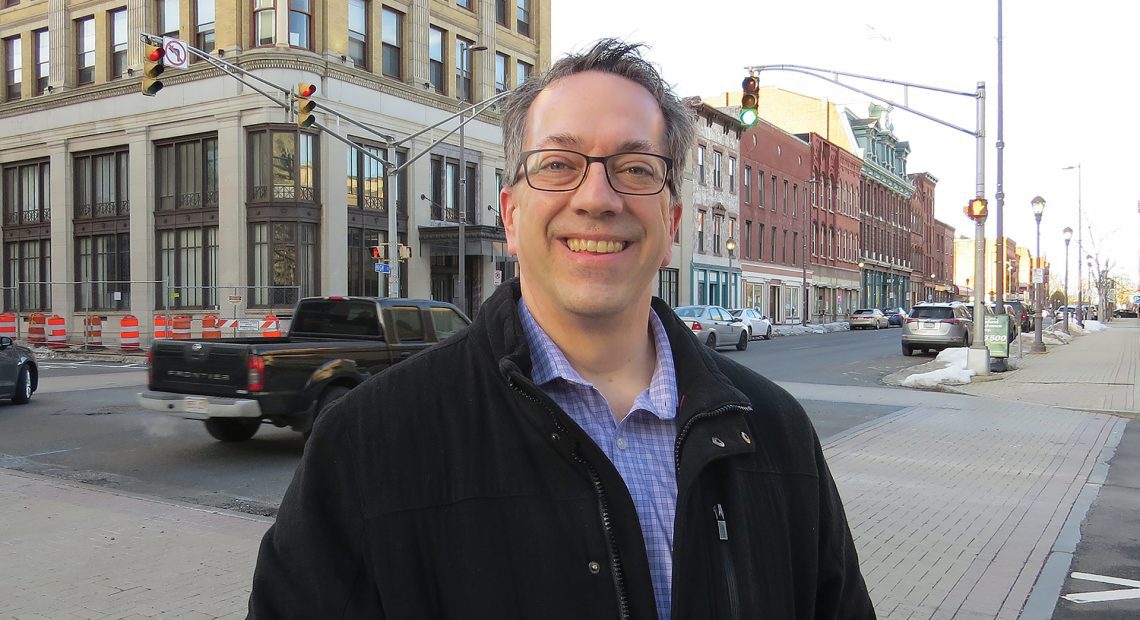
Community Spotlight
Holyoke Looks to Build on the Momentum from Cannabis, Entrepreneurship
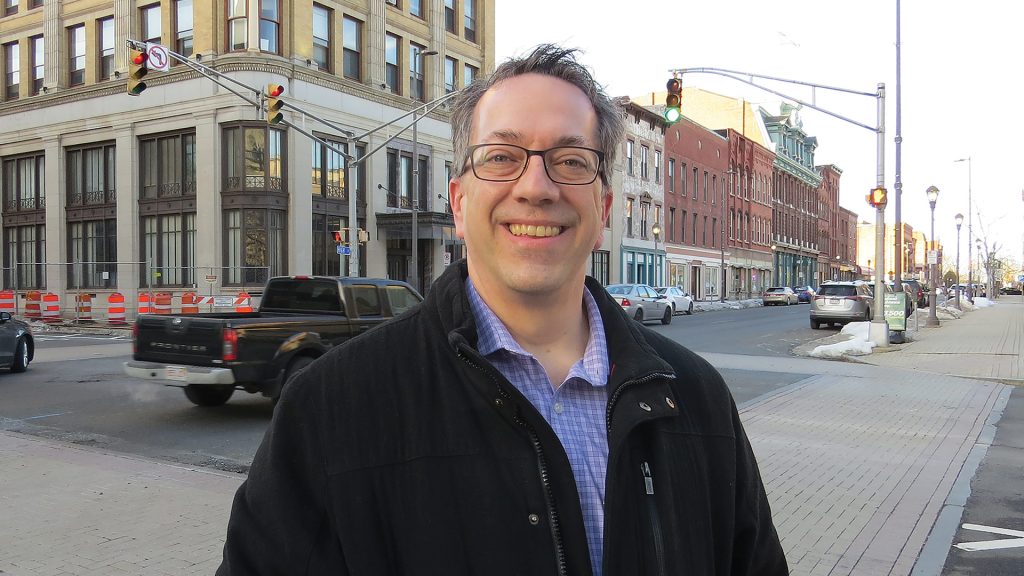
Aaron Vega says there are many cannabis-related businesses now operating in Holyoke, and many more in the pipeline.
Joshua Garcia, Holyoke’s first Puerto Rican mayor and a lifelong resident of this historic community, says that, in many respects, history is repeating itself in the city.
Elaborating, he said that for the better part of a century, the paper and textile mills on the canals were a symbol of strength, a source of jobs, and, in many ways, the city’s identity (see Sidebar here)
It wasn’t that way through the latter half of the 20th century as most of the mills went south, and into the 21st century, he went on, but it’s becoming that way again, largely because of the booming cannabis industry that is breathing new life into those long-vacant mills.
“Those mills were the economic anchor,” he said. “And it’s interesting to see history repeat itself; but instead of the Paper City, there’s now this ‘Rolling Paper City’ interest. Although it’s a different industry … the impact is the same.”
Indeed, cannabis is changing the landscape in Holyoke, figuratively if not literally, although that, too. Aaron Vega, director of Planning & Economic Development in Holyoke and a former state representative, said there are now eight cannabis operations doing business in Holyoke, and several dozen more in various stages of development.
Just as important as the number of ventures is the broad diversity on display, he said, noting that the city boasts several cultivating operations, dispensaries, a testing lab, and more.
“We continue to see cannabis interest and cannabis companies opening,” said Vega. “There’s a lot in the pipeline.”
But while the emergence of a cannabis cluster in Holyoke — similar to what is happening with biotech in Worcester in many respects — has been impressive, there is much more to what most would call a resurgence in this city than one industry. There has been a surge in entrepreneurship that has brought many new businesses to High Street and other streets. There have been several new restaurants, for example, despite the toll the pandemic has taken on that sector, but many other kinds of ventures as well, said Jordan Hart, executive director of the Greater Holyoke Chamber of Commerce.
“Over the past year, we’ve had more than a dozen ribbon cuttings, most of them restaurants and all of them small businesses.”
“Over the past year, we’ve had more than a dozen ribbon cuttings, most of them restaurants and all of them small businesses,” she said, noting that her ceremonial scissors have been given a workout. She credits the pandemic and the manner in which it has prompted introspection and, for many, a desire for something different and hopefully more fulfilling than their 9-5 job, as being a catalyst for some of this activity.
Tessa Murphy Romboletti, director of EforAll Holyoke and now also at-large City Councilor — she was elected last November — agreed.
She said the pandemic has helped fuel interest in entrepreneurship across the board, meaning people of all ages and demographic groups. EforAll has been expanding and evolving in ongoing efforts to meet the needs of such individuals, she said, adding that it is now staging its 12th and 13th cohorts of aspiring entrepreneurs, one for English-speaking candidates, and one for Spanish. It is also adding a new program, called E-Forever, a resource for those who are already in business rather than trying to get off the ground.
But beyond COVID, this surge in entrepreneurship is also being fueled by Holyoke’s emergence as a landing spot for those looking for affordability, diversity, a growing cultural economy, and a chance to do something they may not be able to do in a larger, far more expensive municipality.
People like Jay Candelario, who grew up in the city, moved to New York, but eventually returned. Battling heavy doubts and some long odds, he took an historic home on Dwight Street that had been damaged in a lightning strike, and converted it into Jay’s Bed & Breakfast.
Opened in 2016, the facility has certainly been challenged by the pandemic, but it has hung on, through diversification into catering and events, and Candelario’s persistence and belief in not only himself and his concept, but Holyoke itself (more on that, later).
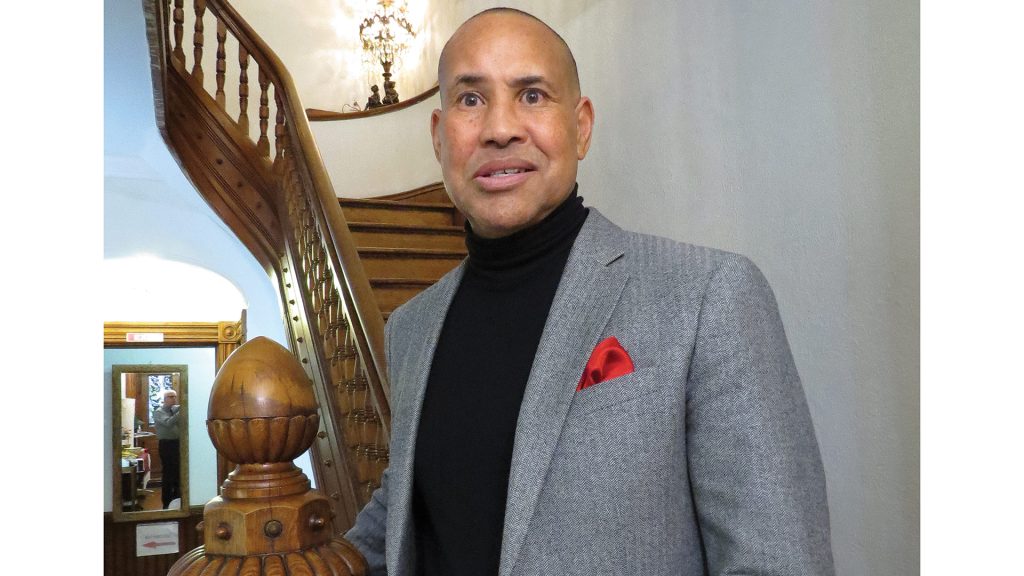
Jay Candelario, seen here at the grand staircase at his B&B on Dwight Street, says Holyoke is staging a resurgence and attracting many new residents and businesses.
For this, the latest installment of its Community Spotlight series, BusinessWest takes an in-depth look at Holyoke and the many forces that are shaping progress in the city and, as the mayor noted, enabling history to repeat itself.
On a Roll
While there are many developments in Holyoke from a business perspective, cannabis continues to be the story.
And as Vega said, it’s one that involves a large number of businesses, diversity of ventures, and large supply of potential new initiatives in the pipeline.
Providing a quick snapshot of the cannabis cluster in Holyoke, which has a popular destination because of its cheap electricity, location near major interstates, and large supply of old mill buildings, Vega said there are now more than 500 people working within the industry in Holyoke, many of whom have graduated from cannabis programs at area colleges (see related story, page 35), and many different kinds of facilities, from cultivation and manufacturing operations., to dispensaries, to a testing facility, Analytics Labs, which opened last year, on Appleton Street. It’s the first operation of its kind in Western Mass., and provides a vital service to businesses that are required to submit the cannabis to independent labs that run a number of tests, for potency, solvents, pesticides, pathogenic microbes, and more.
“We have several businesses already operating, and another dozen growth and manufacturing facilities that could be up and running by the end of the year,” said Vega.
But there are still many challenges facing those looking to enter this industry, especially the smaller ventures, he went on.
“I think there’s still a lot of challenges for these companies to get their financing,” said Vega. “The MSOs — the multi-state operators — are able to set up shop more easily than the locally owned companies, but they are starting to come to fruition.”
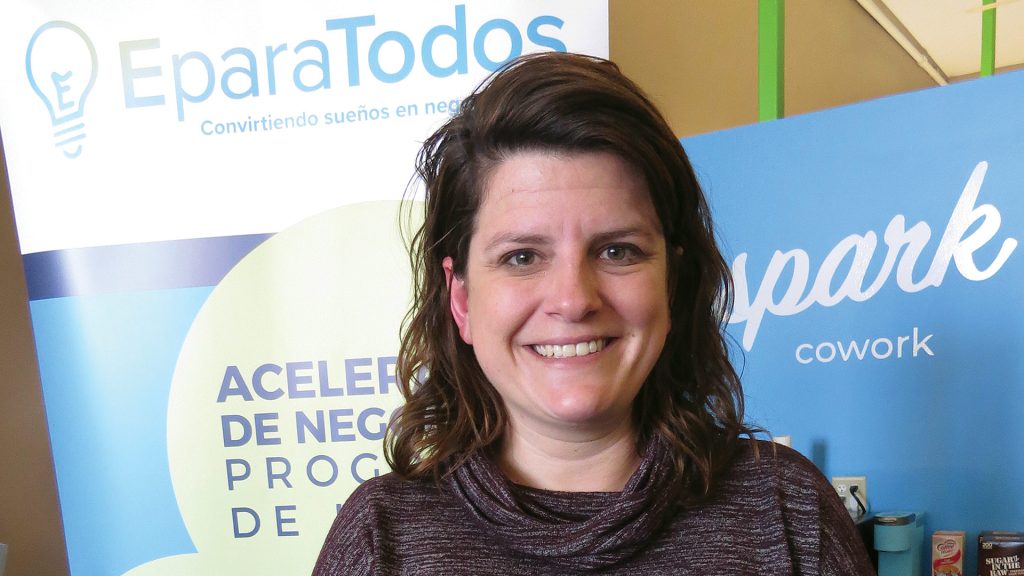
Tessa Murphy-Romboletti, director of EforAll Holyoke, took her involvement in the city to a higher plane with election to the City Council last fall.
One development that may help some of these businesses get over the hump — and help Holyoke as well — is the creation of what Vega called an “incubator” for cannabis businesses in the old National Blank Book property on Cabot Street. There, many smaller businesses are getting support to break into the business and overcome the many hurdles — from financing to licensing to building a workforce — to opening the doors to a new cannabis business.
“We’re really excited about it,” said Vega, adding that there are a number of smaller enterprises occupying spaces in the facility and trying to move ventures forward.
Looking ahead, both Vega and Garcia said that one challenge — and opportunity — for the city is to promote the development of support businesses for the cannabis sector.
Elaborating, Vega said that these businesses must now order lighting, raw materials, and other products from companies on the other side of the country, and would certainly prefer to be able to source them locally.
“They all agree; there could be substantial savings if they didn’t have to order their products from Texas and Florida,” he told BusinessWest. “And we also like to think about the bigger picture — if we get those kinds of companies to land here in Western Mass., not just Holyoke, but Western Mass., there could be tremendous opportunities for the region.”
Elaborating, he said several neighboring states have either already legalized marijuana or are in the process of doing so, and having support businesses that can provide lighting and products in Massachusetts, as opposed to Texas, could facilitate efforts to make this area a hub, not just for Massachusetts, but for all of New England.
Getting Down to Business
Murphy-Romboletti said she first started thinking about running for City Council two years ago. A former city employee — she worked in the mayor’s office and, later, the Office of Planning & Economic Development — she said she has always wanted to be involved with the community and knew that the Council was where one could make an impact — on the city, but also its business community.
After consulting with her bosses with EforAll, a national organization with several locations in the Bay State, including two in Western Mass., and getting their blessing, she threw her hat into the ring. She’s only been on the job a few months now, and has spent most of that time reaching out to department heads and talking with them about what they need for their offices to run better and more effectively.
From an economic development perspective, she said she has long understood the Council’s impact on business. “It has the ability to slow down process or speed up process on things,” she said. “And I think permitting, in and of itself, within our local government, is confusing and not always as necessary as it needs to be, and that’s one of the reasons why I ran.”
Elaborating, and without actually using the phrase, she said one of her goals is to help make the city more business-friendly, and especially at a time when there is so much interest in entrepreneurship — both within the cannabis sector but also well beyond it.
Which … brings her back to her day job. EforAll is seeing growing numbers of applications for its cohorts, she said, adding there are 22 participants in the current sessions. The pandemic has brought a regrettable halt to most in-person learning opportunities (although she’s hoping that might change soon), but the agency is carrying on through Zoom.
A number of graduates have gone on to open businesses, many in the downtown area, she said, adding that the ongoing needs of these ventures prompted the creation of E-Forever.
Undertaken in conjunction with Entrepreneurs Forever, the new group is a “resource for those who have gone through the program and are currently in business, rather than those who are just getting started,” she explained.
“These businesses are generating revenue, and they have unique challenges,” she went on, adding that this group of perhaps 8-10 entrepreneurs will meet once a month, share information, and troubleshoot. “The entrepreneurs pick what they want to work on; it’s like having an accountability group that meets each month to support whatever challenges you’re having as an existing business owner.”
The broad goal, she said, is to enable more businesses to weather the many storms they will face as they mature and grow and stay in business, preferably in Holyoke.
A good deal of resilience has already been on display, said Jordan, adding that she couldn’t think of a single business in the city that closed during the pandemic, and, meanwhile, as she noted, many new ones have been opening.
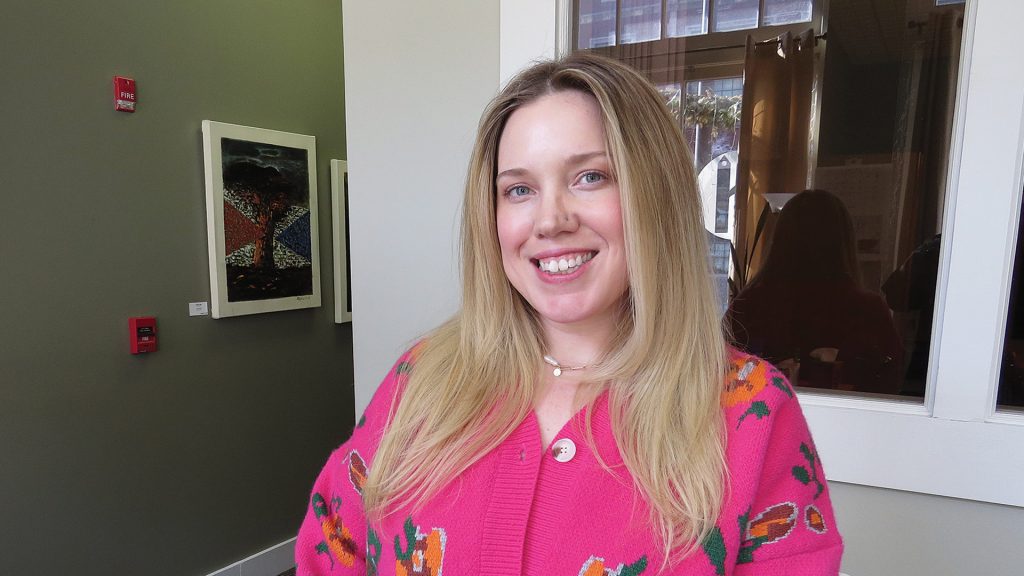
Jordan Hart, executive director of the Greater Holyoke Chamber, says the pandemic has helped create a surge of entrepreneurship in the city and a number of new businesses.
“It’s been remarkable to see the perseverance the community has to see Holyoke thrive,” she said, adding that while existing businesses, often with help in the form of local, state, and federal grants, have found what it takes to survive the pandemic, COVID has inspired many others to join their ranks in the business community.
“People began to prioritize not only their personal life and their personal interests, but also their mental health and well-being,” she explained. “And many found that what they wanted was more work-life balance and flexible schedules. And that’s where entrepreneurship came into play … with people finding their true selves, what their purpose is, and what they want their purpose to be; the pandemic really shook things up in that sense.”
She said the roster of new businesses includes restaurants, like Crave, El Paradiso Colombiano, and the Avalon Café, and several cannabis-related businesses, but also a few boutiques. And, as noted, most are in the heart of downtown, bringing many formerly dormant spaces to life.
Rooms with a View
That historic home on Dwight Street that Jay Candelario found was more than dormant.
It needed considerable work inside and out, he told BusinessWest, adding that while most were more than willing to consider the property known to most as the Moriarty mansion and ultimately pass, he decided to take a chance.
“I’m a risk taker,” said Candelario, who was born in Puerto Rico, grew up in Holyoke and then Amherst, and moved to New York City as an adult. “And you would have to be a risk taker to take this on.”
Those sentiments reflected more than the condition of the Queen Anne Victorian; they also referenced the time of this acquisition (2009, the height of the Great Recession) and the seemingly long odds against creating a successful B&B in downtown Holyoke.
But Candelario was able to look past the challenges and the doubters and see opportunity. It’s taken a while for the vision to become reality, and the pandemic has certainly put more hurdles in front of him — he admits to coming close to packing it in and moving on to something else — but Candelario, like many business owners in Holyoke, has persevered.
“We have several businesses already operating, and another dozen growth and manufacturing facilities that could be up and running by the end of the year.”
As he gave BusinessWest a tour and pointed out rooms bearing the names of places he’s visited in and lived in — ‘Brazil,’ ‘New York,’ ‘Puerto Rico,’ and ‘Holyoke,’ among others — Candelario said business has been steady if unspectacular, with guests ranging from traveling nurses, to executives for Coca Cola, to “emergencies” in the form of needed beds for those being helped by the nonprofits Roca Holyoke and Women’s Shelter Companeras, now Alianza. Over the years, though, he’s been able to draw guests visiting area colleges, individuals in town on business, and those attending the St. Patrick’s Day parade and road race. His audience is those who want something different than the run-of-the-mill hotel room.
Shut down for the better part of a year by the pandemic starting in March, 2020, he said he’s been able to keep his dream alive by diversifying and expanding his operation into catering and the hosting of events ranging from baby showers to family reunions to nonprofit retreats.
While reflecting on his business and where he can take it, Candelario also ruminated on Holyoke, its present and its future. And he drew many comparisons to the Bronx, another diverse community he believes is also misunderstood and underappreciated. He lived there for some time, and was originally planning to open a B&B near Yankee Stadium until the economic downturn in 2008 scuttled those plans.
“The Bronx and Holyoke have a lot in common,” he said. “It’s the inner city, working class, different cultures; they’re melting pots that many people just don’t appreciate for all that they are.”
Beyond these qualities, the city boasts location and affordability, two important factors in these changing times.
“Holyoke is very affordable for those people who are starting off,” he explained. “They can get better housing for the buck. And if you want to work in Northampton, it’s 10 to 15 minutes away; Springfield is 10 to 15 minutes away; Agawam is 10-15 minutes away.
“I see Holyoke as a very progressive, very upwardly mobile city,” he went on. “You have people from many different areas coming here, not just locally, but from around the country. I run into people from Chicago who moved here, and Florida, California, New York City, and Boston. They come here because they see opportunities. People see the same thing that I see.”
View to the Future
Candelario said he assigned the name ‘Holyoke’ to one particular room at his B&B because, if one looks closely, he or she can see City Hall from one of the windows.
As he surveys the scene, though, he sees more than that iconic structure. Much more.
He sees a city that is putting its recent, not so glorious, past, behind it, and becoming something else: a destination of sorts, for travelers, but especially residents seeking affordability and quality of life, and businesses looking for a solid spot to land.
This is what Mayor Garcia had in mind when he said that history is repeating itself in Holyoke, and not just when it comes to the mills as a symbol of jobs and economic might.
Indeed, Holyoke’s past, as an ethnically diverse center of business and culture, is also its future.
George O’Brien can be reached at [email protected]




